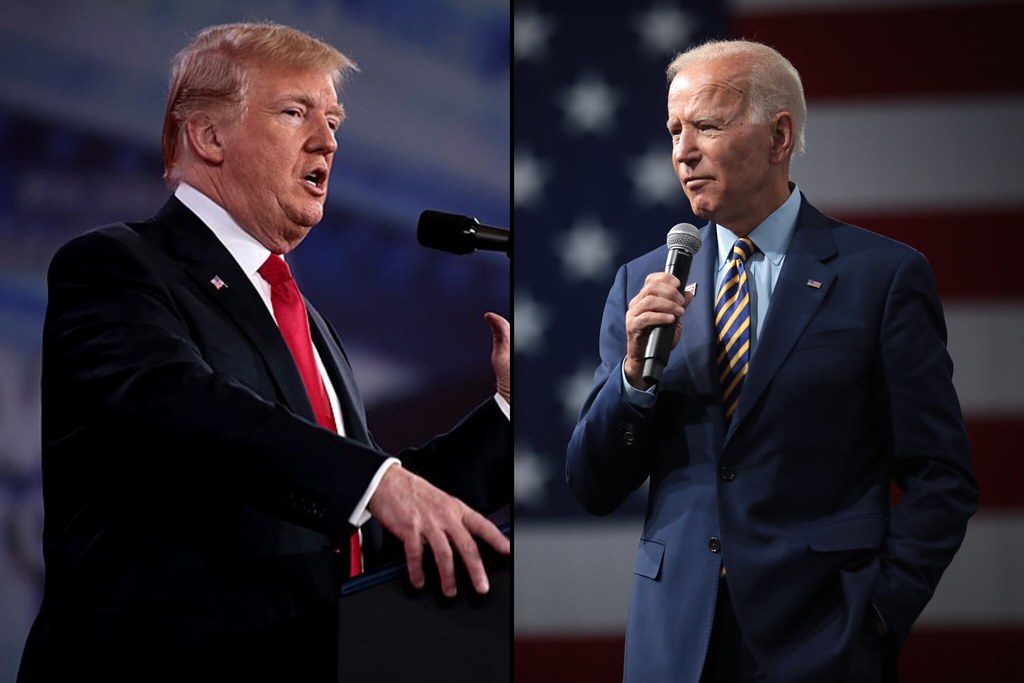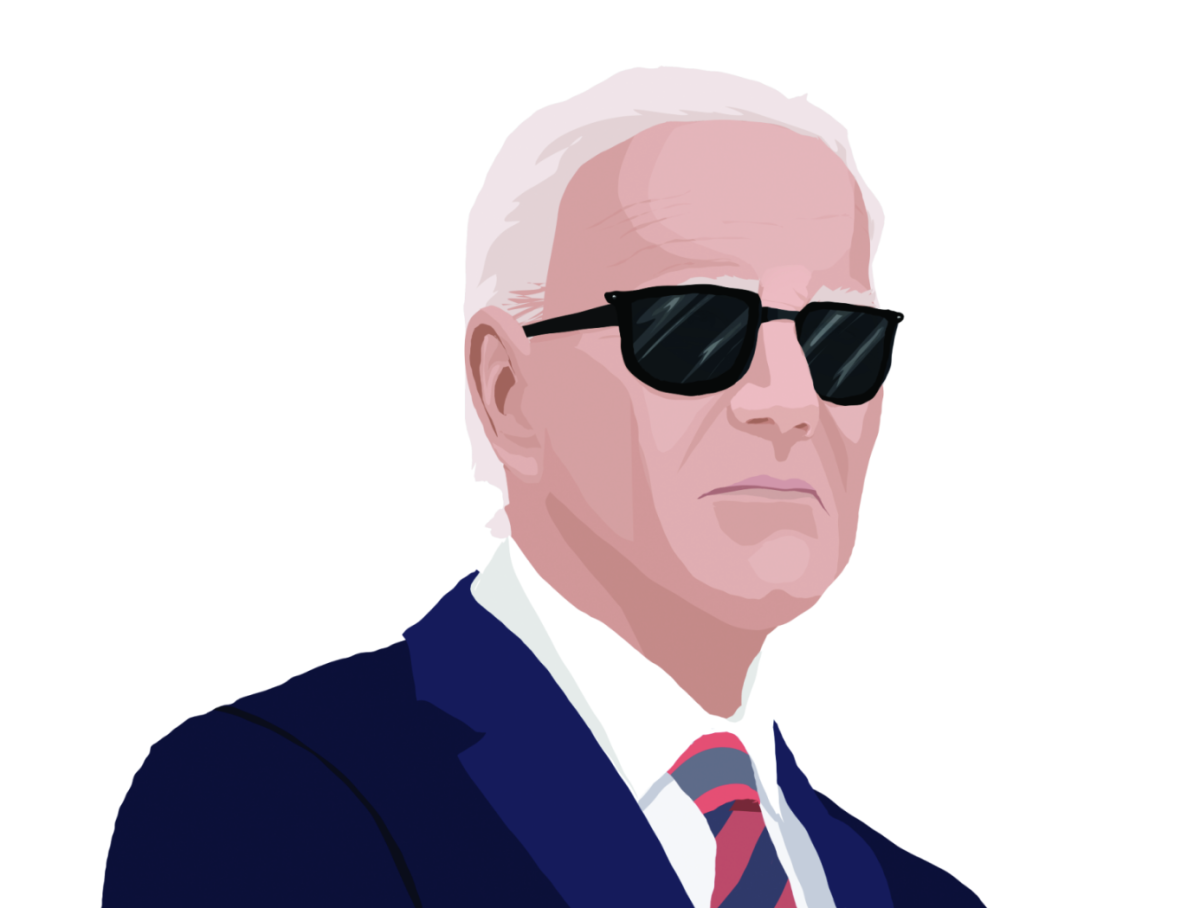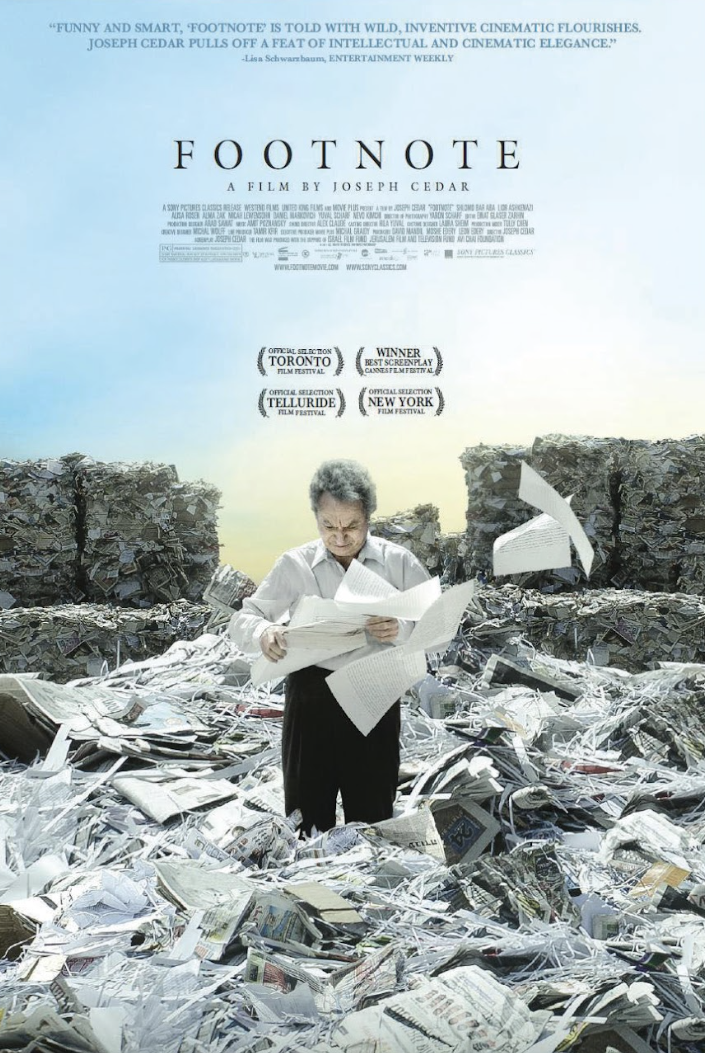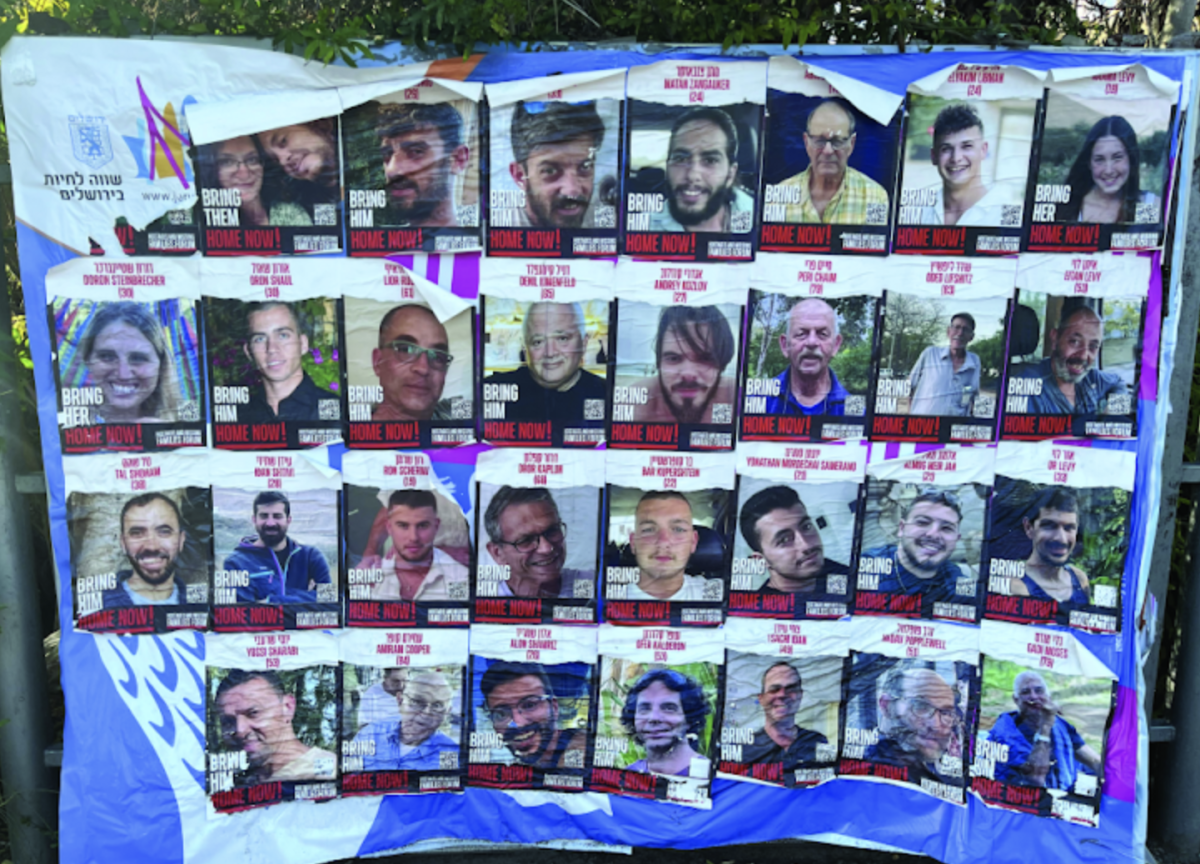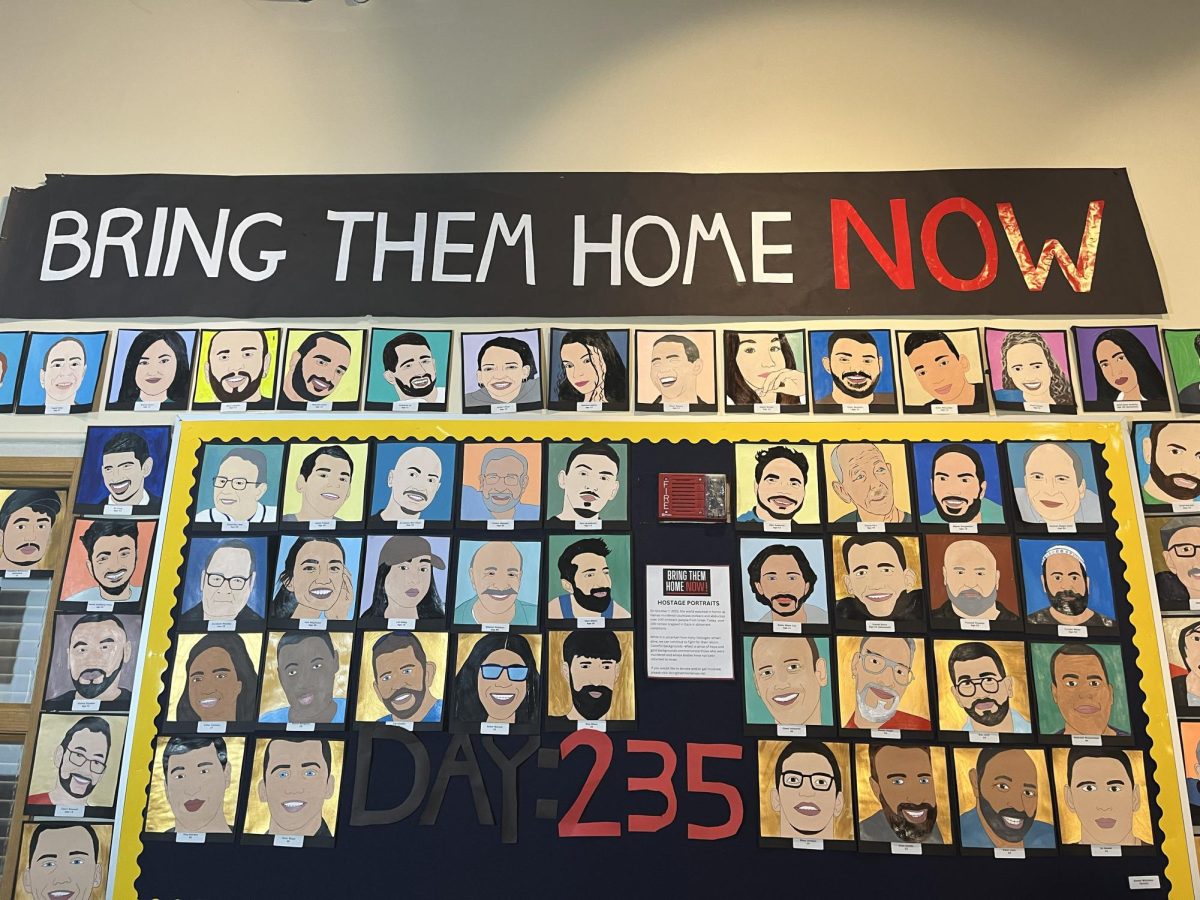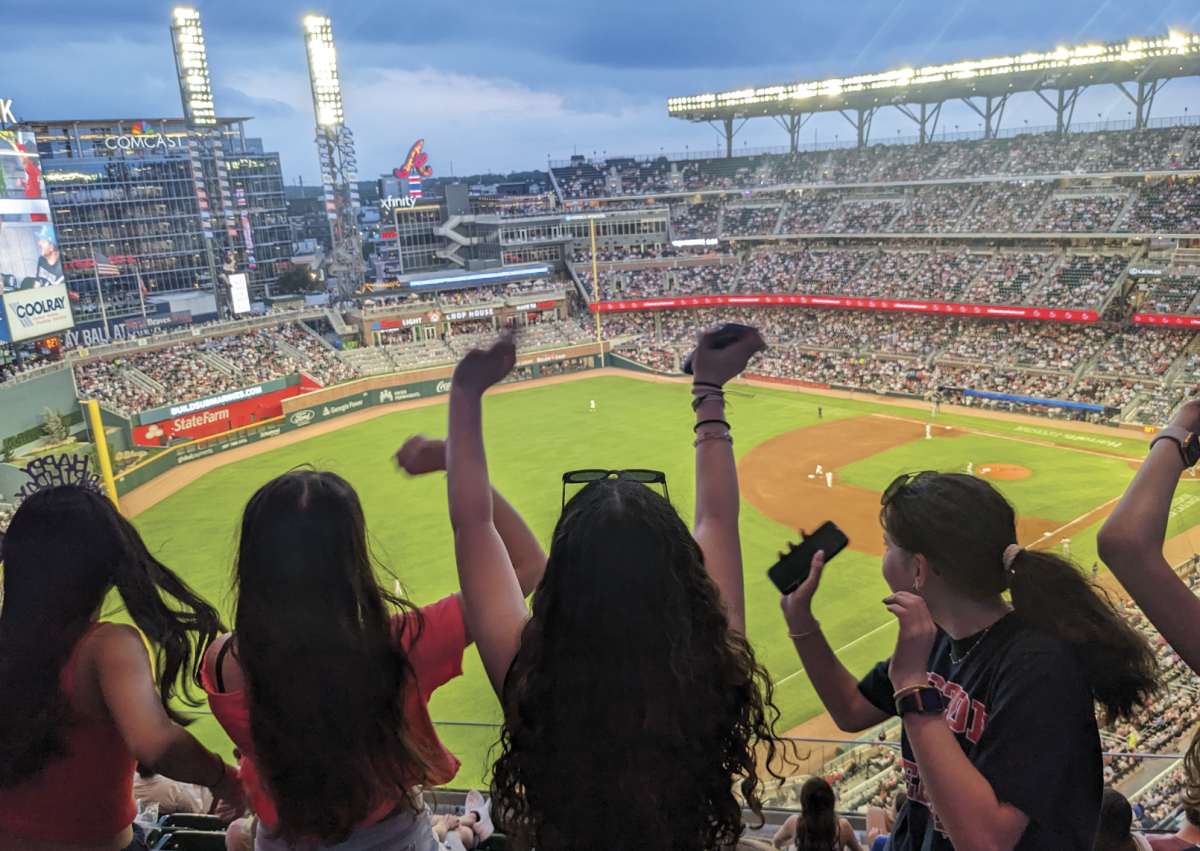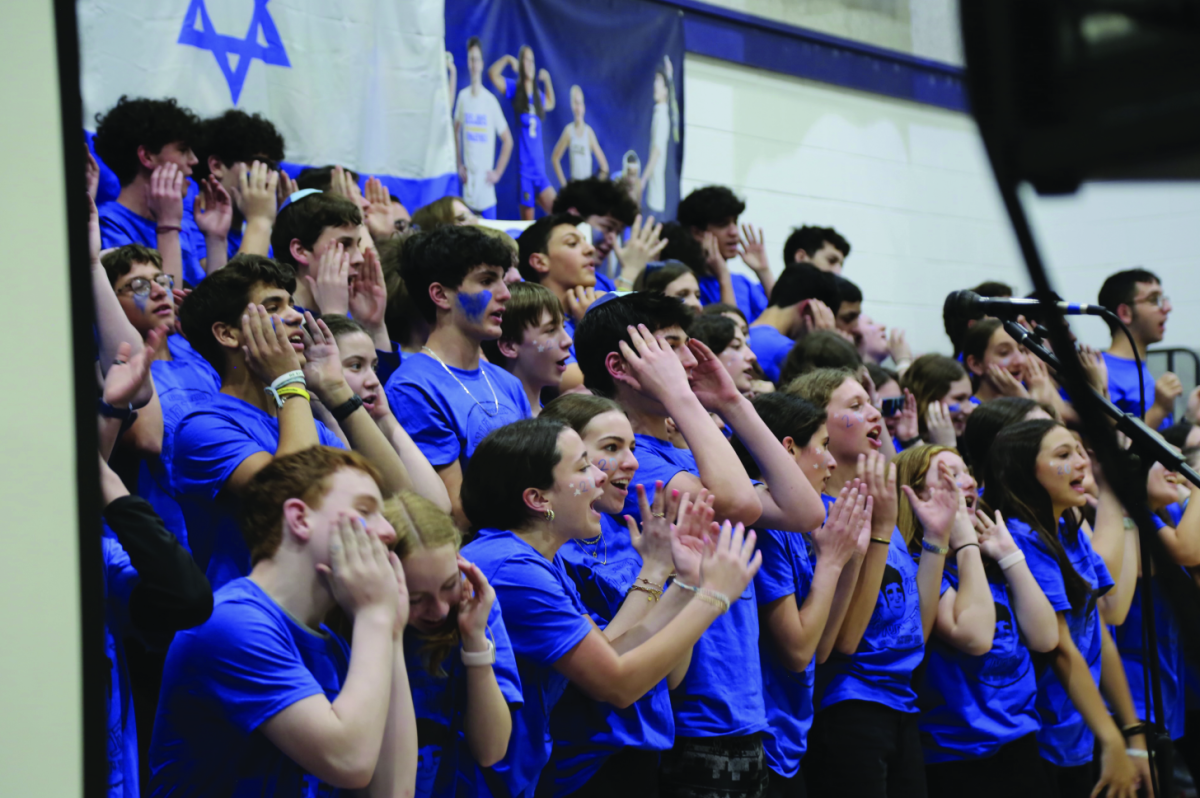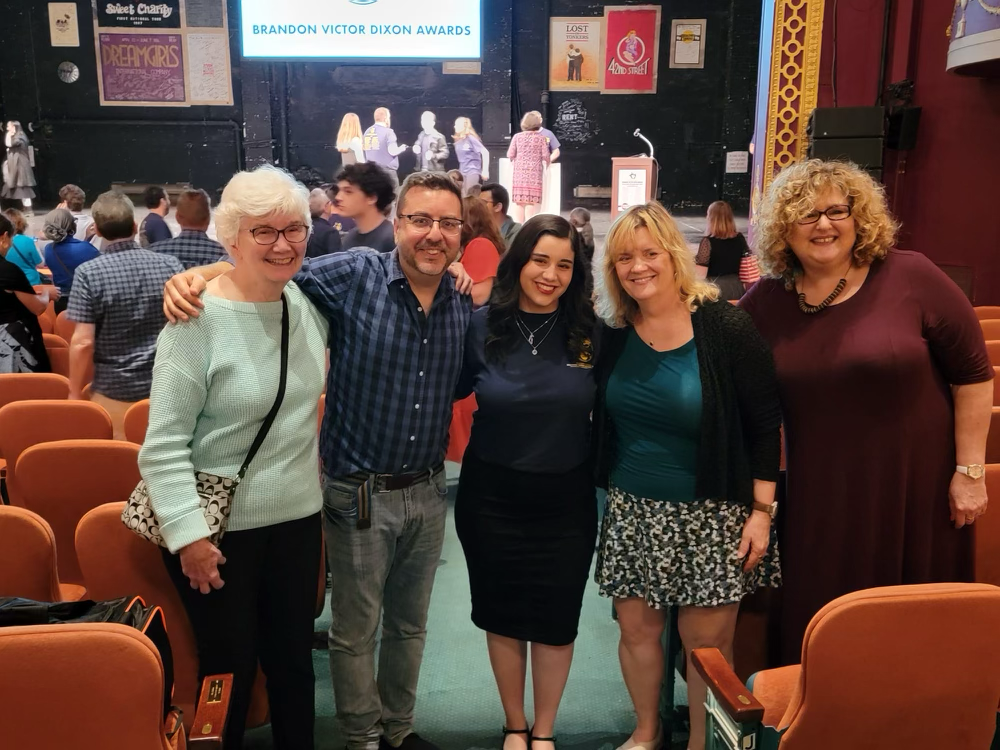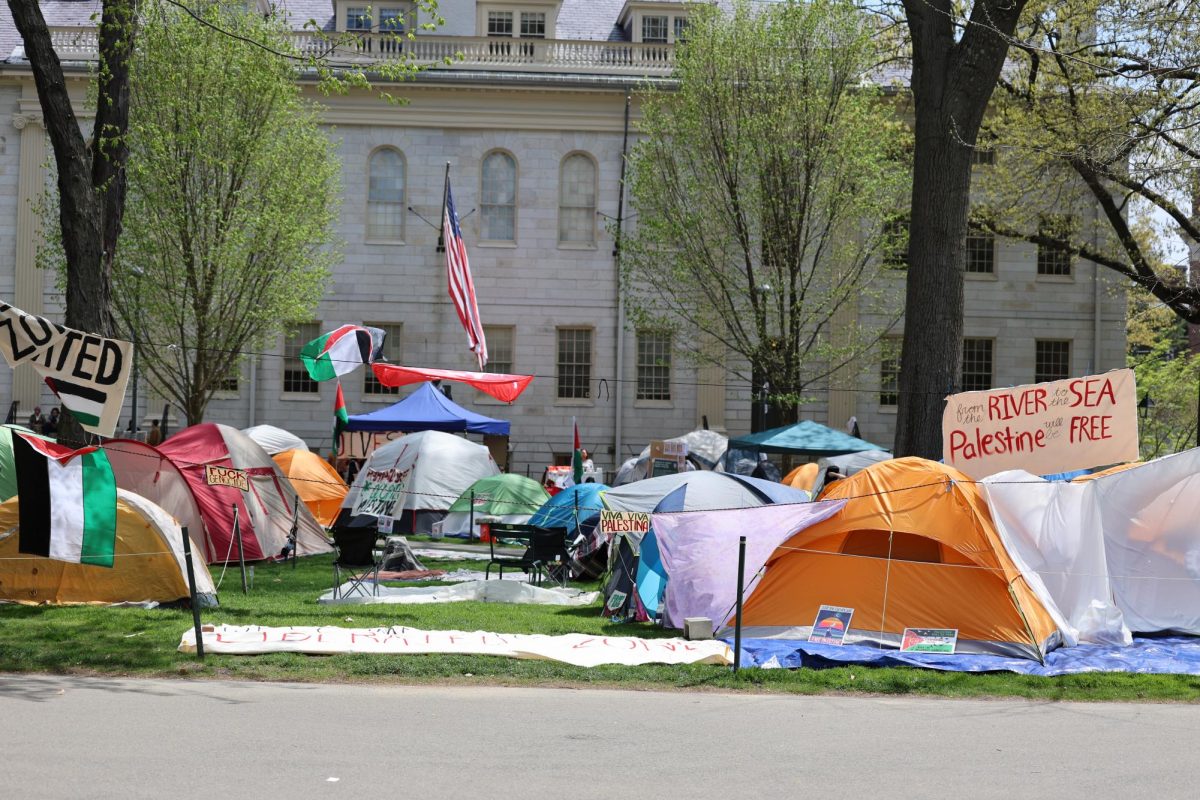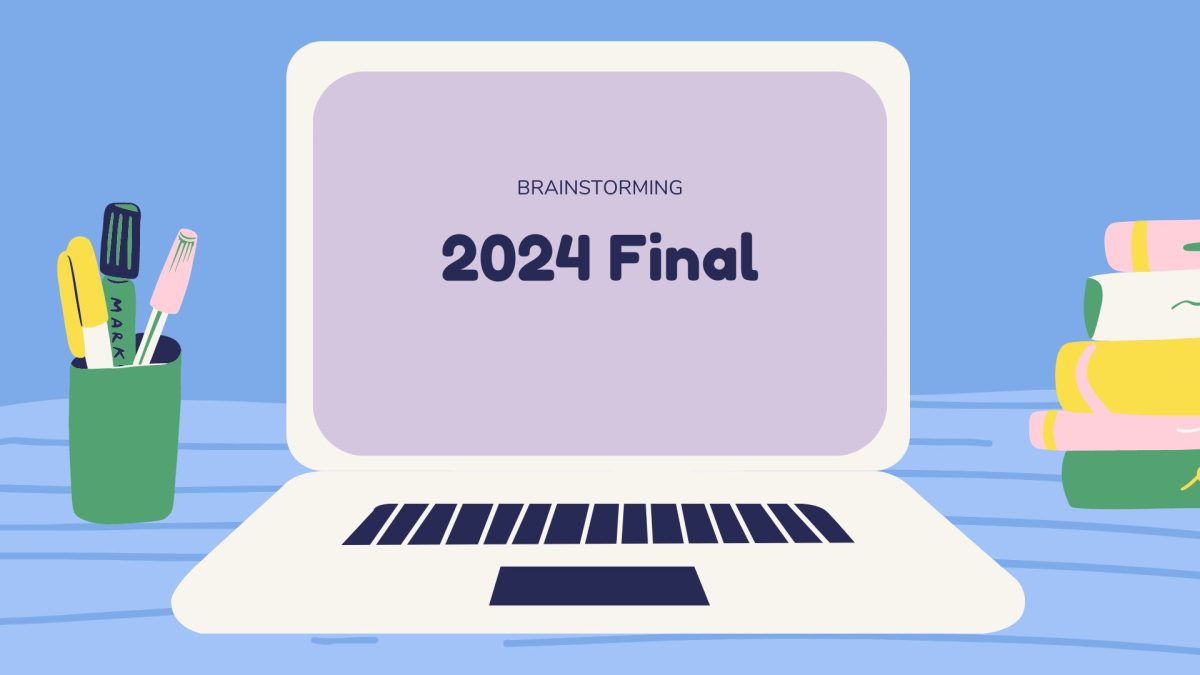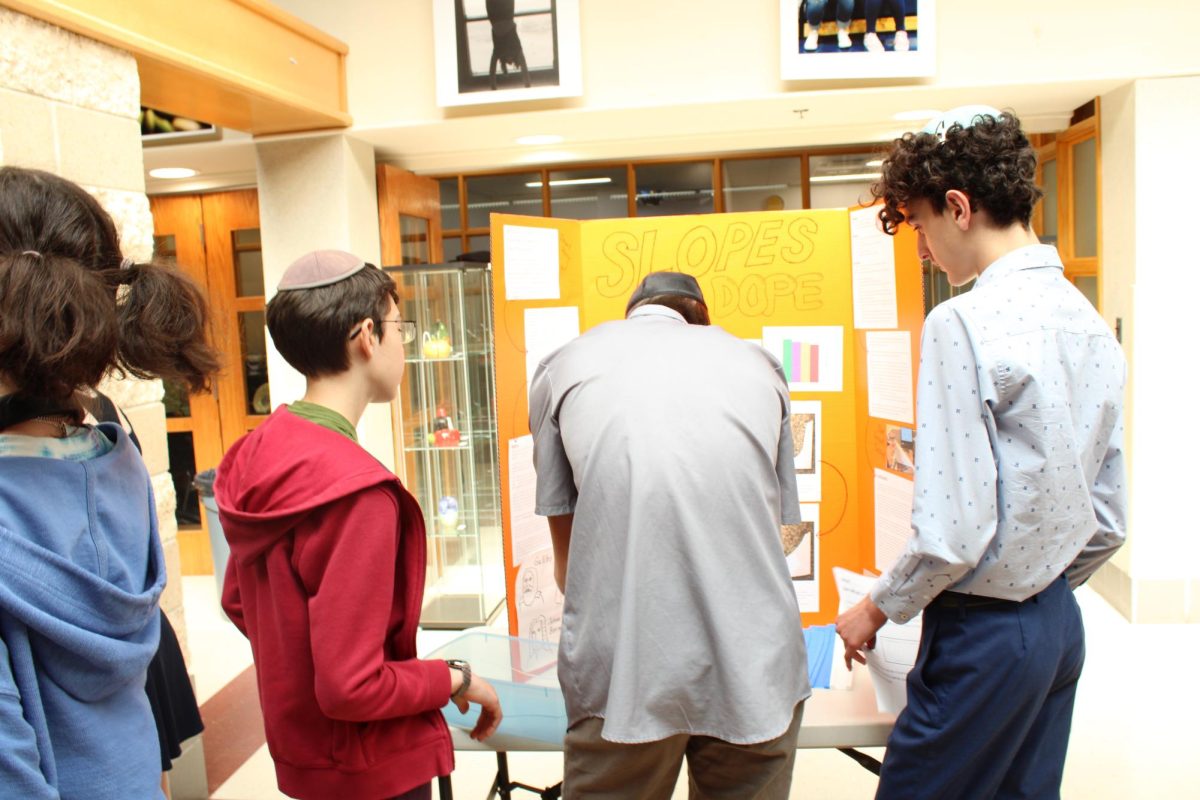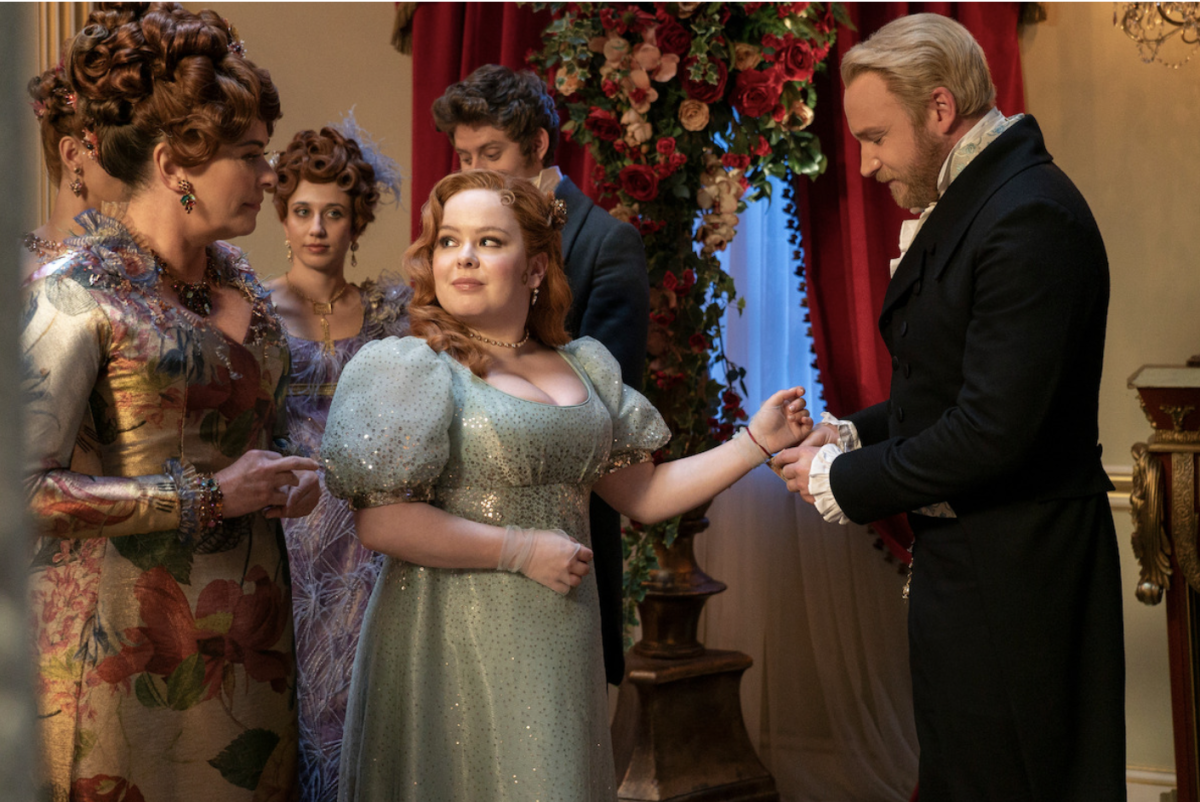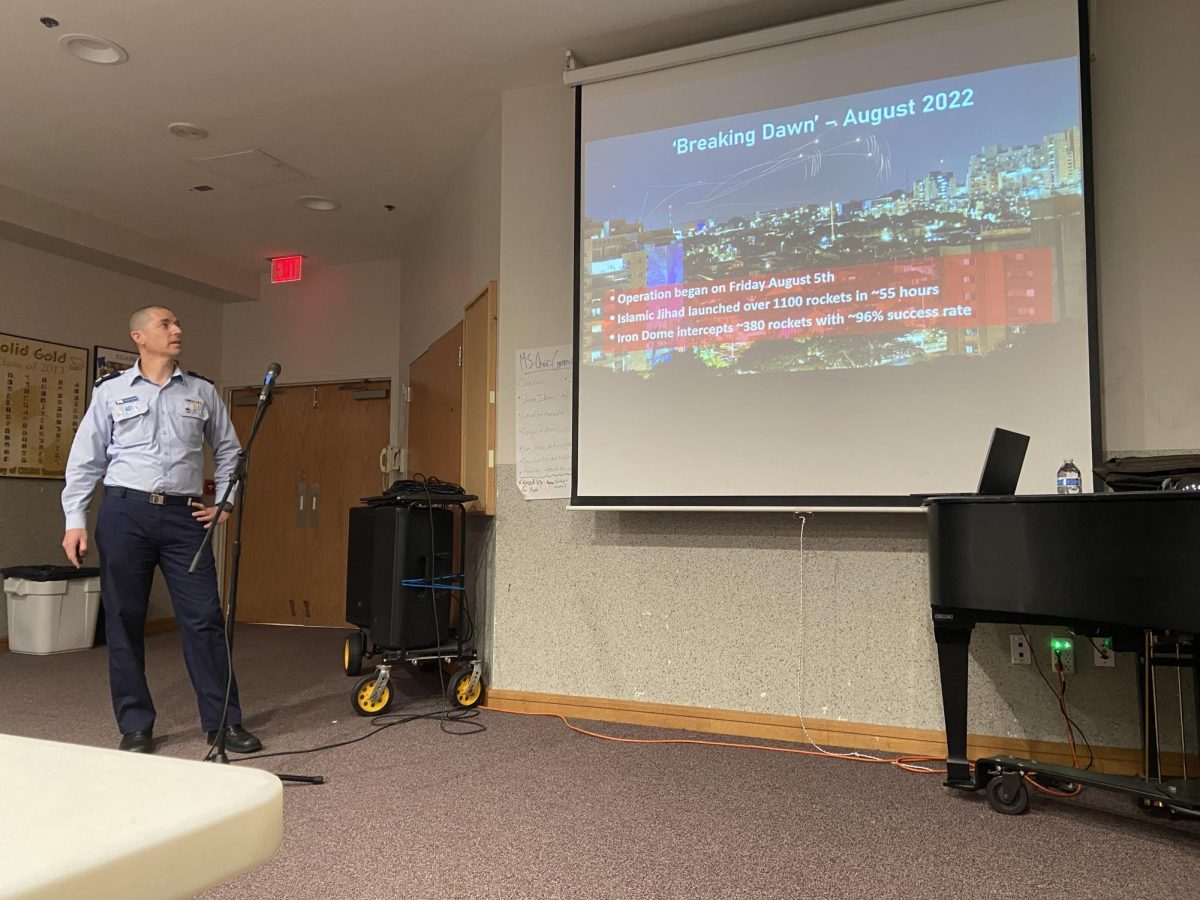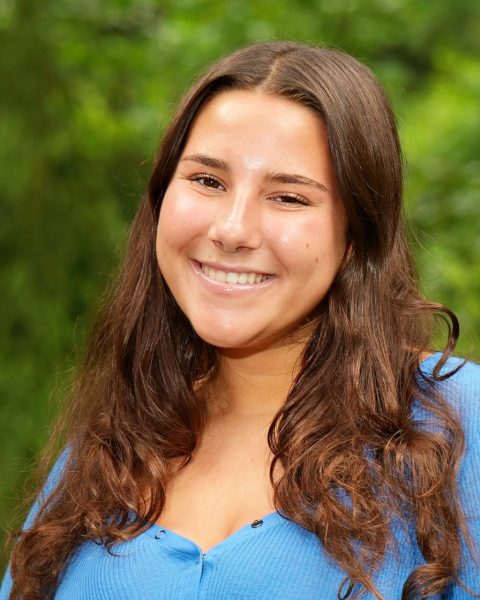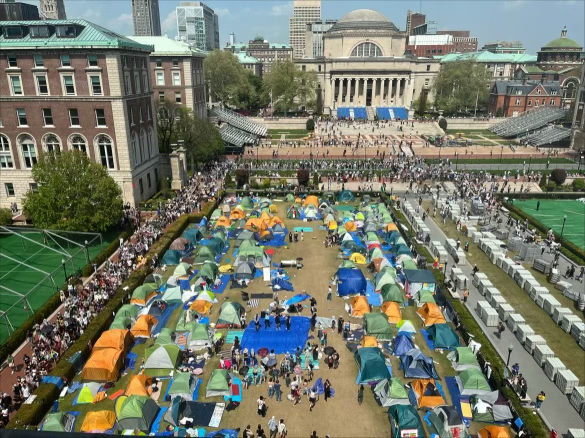
In over 100 universities across the country, pro-Palestinian students have set up anti-Israel protests with many subsequent encampments. On the surface, these structures and demonstrations are the response of anti-Israel students to challenge their universities’ support of Israeli businesses and are a call for divestment. However, much anti-semetic rhetoric and violence have taken place.
Since Oct. 7, there have been protests, whether pro-Israel or pro-Palestine, on and off of college campuses around the world. But there has been a recent spike in the intensity of the protests.
According to the Anti-Defamation League (ADL), this is due to the “Popular University for Gaza” initiative, the National Students for Palestine label of the student movement, set up by Students for Justice in Palestine (SJP). SJP has had a presence on many campuses since the beginning of the war, and has played crucial roles in the organization of the recent demonstrations that follow the ideology of the aforementioned initiative. SJP has explicitly led to antisemitism on campuses because they endorse the actions and ideology of Hamas, incorporating much anti-semetic rhetoric in their organization and actions.
These protests began escalating on the campus of Columbia University on April 18, when, according to Forbes, about 109 demonstrators were arrested by the NYPD for their disruptive presence. A number of Columbia students were also suspended as students and/or removed from campus due to their acts of aggression in the protests, breaking into Columbia’s Hamilton Hall. According to CNN, “approximately 300 people were arrested between Columbia and the City College of New York.”
For Jamin Weiss (‘23), these demonstrations had a detrimental impact on his freshman year at Columbia University.
“I walked into my school, and I saw just a mob of protesters with shattered windows and a huge Intifada banner hanging down from the side of the building, and in that moment, I really just felt like we’ve lost as Jews,” Weiss said.
Throughout the month of April, these demonstrations and encampments sprouted at universities all around the country. According to the ADL, by April 26, there had been at least 53 American college campuses with encampments in 22 states, ranging from large public universities to small, private ones. This also included seven of the eight Ivy League schools.
“This is Columbia University,” Weiss said. “It’s one of the best schools in America, in the middle of New York City, where there are a lot of Jews. And here I am looking at this mob, chanting for violent rebellion. It was scary, it really was. And I think every, almost every, Jewish student has been affected by it this semester.”
There have been cries of Intifada at protests, as well as slogans calling “From the river to the sea” and signs reading “Al-Qasam’s next targets.” Such antisemitism and anti-Zionism has caused discomfort for many Jewish students and faculty on college campuses. According to Hillel, the majority of Jewish college students say that they felt less safe on campus due to encampments. Reportedly, 61% of 310 Jewish students reported antisemitism during campus protests and 58% feel less safe because of the encampments. Largely, 40% have felt the need to hide their Jewish identity on campus.
“If you walk through any of those protests with any visible sign of your Judaism, those protesters, they look at you as if you’re like the scum of the earth,” Weiss said. “And that was just that was just one moment to me where I felt like ‘Oh my God. Like, this is so real.’”
Weiss felt unsafe being Jewish on campus, he specifically recalls one night, walking past a protest on his way back from Chabad, with a kippah on his head. According to Weiss, that was the first time in his life that he “genuinely felt scared to be a Jew.”
“At Columbia, the word Zionism has the same connotation as white supremacists,” Weiss said. “It’s like, it’s like everyone in the world knows that a white supremacist is evil, right? And that’s just the way that so many students feel about Zionism. It’s like this isn’t a nuanced issue at all to them, Zionism is an evil colonizing I acknowledge again,”
Columbia University’s President Dr. Minouche Shafik addressed the protests in her public statement to the Columbia Community.
“Columbia has a long and proud tradition of protest and activism on many important issues such as the Vietnam War, civil rights, and the anti-apartheid struggle in South Africa. Today’s protesters are also fighting for an important cause, for the rights of Palestinians and against the humanitarian tragedy in Gaza,” Shafik said. “They … have a right to express their views and engage in peaceful protest. But students and outside activists breaking Hamilton Hall doors, mistreating our Public Safety officers and maintenance staff, and damaging property are acts of destruction, not political speech.”
According to CNN news, New York Mayor Eric Adams, New York City police entered Columbia University after receiving a request from the school. If you walk through any of those protests with any visible sign of your Judaism, those protesters, they look at you as if you’re like the scum of the earth. — Jamin Weiss
“Police entered the campus to allow Columbia University to remove those who have turned a peaceful protest into a place where antisemitism and anti-Israel attitudes were pervasive,” Adams said.
Ned Lazarus, teaching associate professor of International Affairs at George Washington (GW) University’s Elliott School and father of junior Shalva Lazaraus,has come across these demonstrations while walking around campus despite attempting to steer clear of them.
“Whatever you want to call it, antisemitic, anti-Jewish, anti-Zionist,” Lazaraus said. “Whatever it is, it’s hate, and it’s completely unacceptable. So, the fact that that stuff is going on, is really sad and it’s disappointing.”
Lazarus is in a unique position because he teaches courses on the Arab-Israeli conflict at GW, so he has had the opportunity to facilitate conversations between supporters of both sides of the conflict.
“I have students who participated in the protest, and students who really are very opposed to the protest, and that’s great,” Lazarus said. “That’s what I want. I want to be able to have everybody in my classes. I want to have a diversity of opinions on both sides of that.”
Unlike with Weiss’ experience, not all Jewish students on campuses with such protests and encampments felt this same discomfort. Incoming senior at the University of California Los Angeles (UCLA), Jonah Blumenthal, brother of sophomore Maiya and Ari (‘24) Blumenthal, did not encounter as much of the violent sentiments on campus.
“Most of them [the protesters] were peaceful, there wasn’t that much overt anti semitism,” Blumenthal said. “There were definitely anti-semitic tropes and very questionable posters and chants, but I think for the most part, most of the protesters probably did have pretty good intentions.”
Blumenthal mentioned that the only true violence that occurred in the demonstrations was actually on the side of the pro-Israel counter protest. Blumenthal explained that there was never a threat of physical safety throughout the pro-Palestinian protests, it was only pro-Israeli protesters that, though on a small scale, violently attempted to take down the encampment structures and became very aggressive with the demonstrators. The next night, the University police as well as the Los Angeles police got involved in dismantling both protests.
On the Columbia, GW and UCLA campuses, the universities called on police in shutting down the encampments and protests. While many saw this as an unnecessary escalation of the situation, Weiss and Blumenthal both view the universities’ decisions and police involvement as the correct courses of action.
“In terms of when they got law enforcement involved, I actually think they did handle it very well, because they very much did want to deescalate the whole situation,” Blumenthal said. “They gave protesters a lot of leeway to just leave before law enforcement got called … I don’t think there was any abuse of power.”
Despite the chaos on their respective campuses, both Weiss and Blumenthal said that the Jewish communities on their campuses provided them places to feel safe and supported amid the demonstrations and anti-semitism.
“For better or for worse, the Jewish community was really united together this year, just because, you know, trauma brings people together,” Weiss said.


